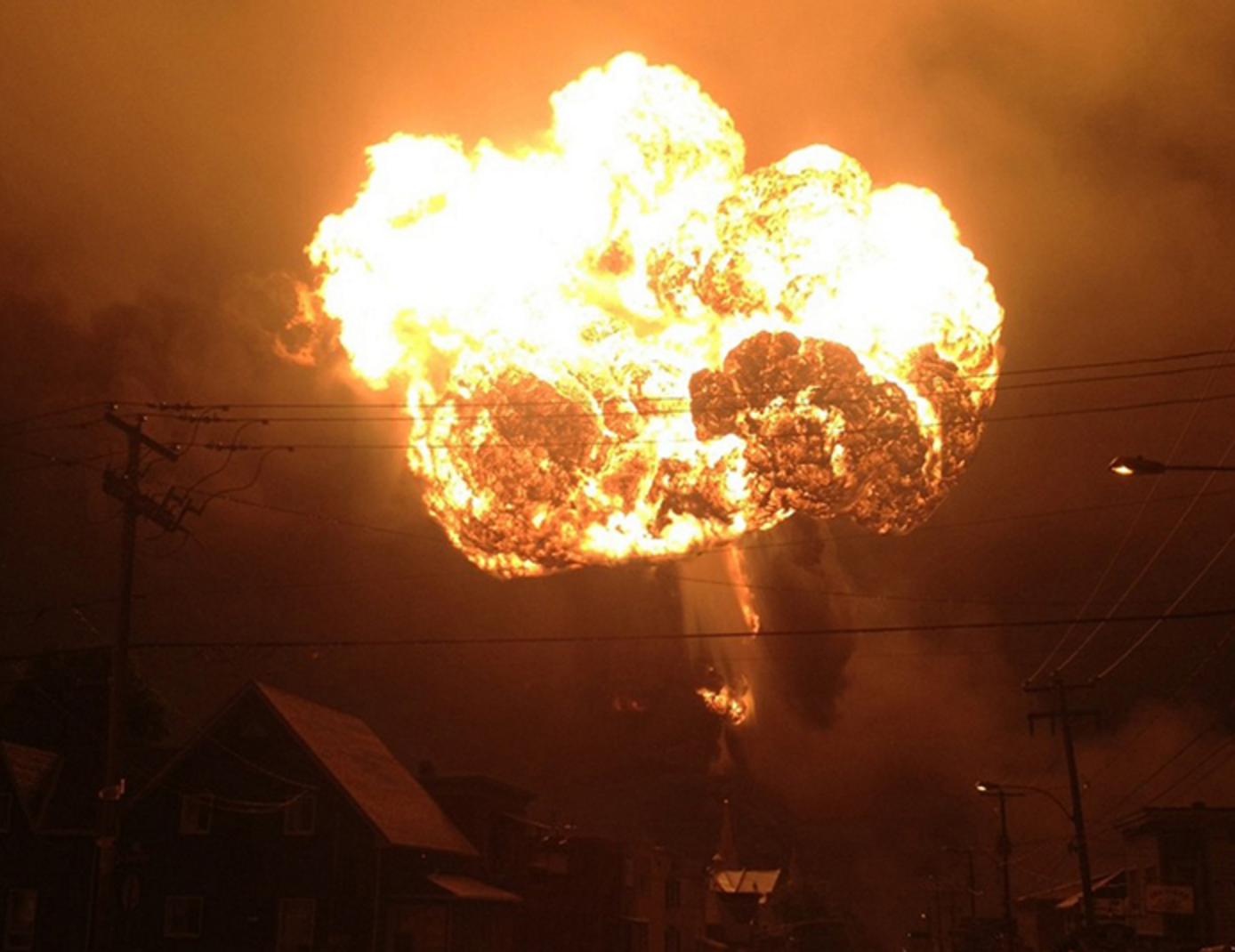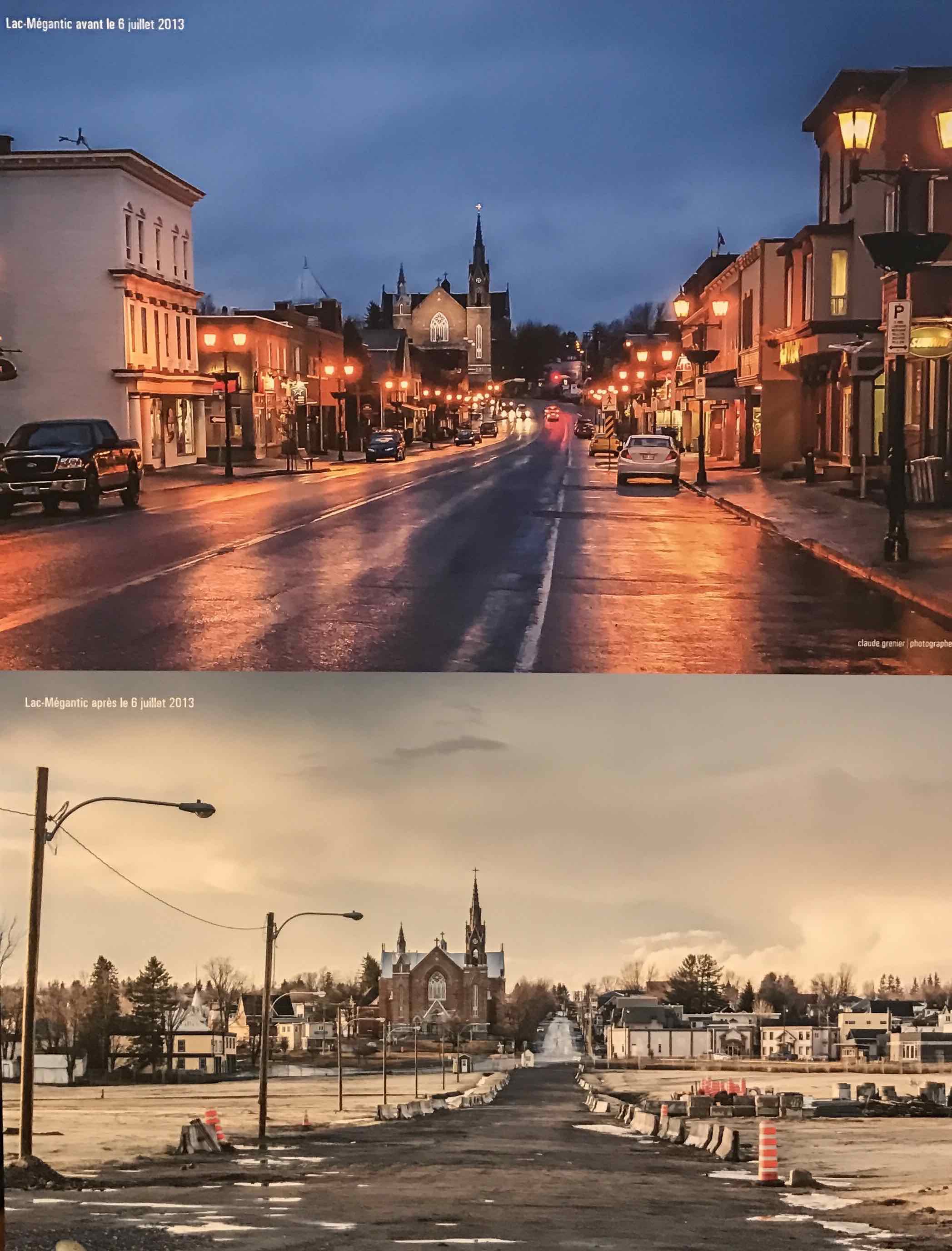New York Attorney General Eric T. Schneiderman has joined with attorneys general from California, Illinois, Maryland, Maine, and Washington in calling for limits on the volatility of crude oil transported by rail. The failure of federal regulators and Congress to address this known safety issue has led Schneiderman to continue to pressure regulators on it.
“Because of a regulatory loophole, these trains can carry crude oil through some of our most densely populated areas without any limit on explosiveness or flammability — creating ticking time bombs that jeopardize the safety of countless New Yorkers and Americans,” said Attorney General Schneiderman. “It’s time for the federal government to put New Yorkers’ safety first and take immediate action to close this dangerous and nonsensical loophole.”
A coalition of environmental groups led by the Natural Resources Defense Council has also submitted comments to regulators urging the creation of volatility limits for crude oil.
This current effort to appeal to the Trump administration comes after years of the Obama administration failing to take action. As reported by Reuters, the directive to not regulate the volatility of Bakken oil came from the White House.
Volatile crude oil from the Bakken shale region in Montana and North Dakota has been involved in multiple train derailments resulting in large oil spills and fires. The worst such accident happened in the small Canadian town of Lac-Mégantic, Quebec. It resulted in the deaths of 47 people and the entire downtown area being destroyed. That accident occurred almost four years ago, but downtown Lac-Mégantic remains a large vacant lot.
Despite the dire warning about the dangers of moving the same volatile oil in unsafe tank cars, this practice continues in communities across North America today.
Lac-Mégantic before and after the oil train explosion in 2013. Credit: Claude Grenier, Studio Numéra, Lac-Mégantic.
Oil Industry Using Denial Strategy Once Again
This really is a simple story. Reducing the volatility of the oil prior to transport by rail would increase safety but cut into oil industry profits, which is why the industry has fought any such regulations.
So far, these efforts have succeeded. Just as the oil industry has spent decades challenging the well-known evidence supporting human-caused climate change, industry has adopted the same approach for oil by rail, claiming that science doesn’t support using vapor pressure as a measure of volatility and risk.
In October 2016, at the annual Energy by Rail Conference in Arlington, Virginia, Suzanne Lemieux of the American Petroleum Institute (API) gave a presentation on crude oil volatility and stabilization with the title of “Crude Oil Volatility: Myth vs. Fact” — and she was pretty clear about what she thought was a myth.
“I will reiterate that volatility in itself is a myth as far as a one-size-fits-all solution to this problem,” Lemieux said. “It’s not the way to go as far as improving safety.”
Again mirroring the strategies used to undermine climate science, the preferred approach by the oil industry and its partners in Congress is to endlessly “study” already well-established science in order to delay action.
The American Fuel and Petrochemical Manufacturers (AFPM), an oil industry lobbying group, made the argument to regulators that any regulations should be delayed until “ongoing studies” of the characteristics of oil are completed. As noted by The Hill, the AFPM went so far as to argue, “Further proceedings based on crude oil characteristics conflict with Congress’ considered judgment to delay further regulation until the completion of ongoing studies on the transport of flammable materials …”
There is one glaring problem with that statement. When the Congressional science committee held a hearing on the volatility of Bakken oil in 2014, they didn’t invite any oil scientists to weigh in on this scientific matter. Which means their “considered judgment” was not informed by true experts familiar with the chemistry of oil.
Ask a Scientist: “Bunch of BS”
So what happens when you ask an actual oil scientist?
In an April 2015 article in Al Jazeera about the volatility of crude oil, an actual petroleum engineer clearly stated what is widely known in the oil and rail industries.
“The notion that this requires significant research and development is a bunch of BS,” said Ramanan Krishnamoorti, a professor of petroleum engineering at the University of Houston. “The science behind this has been revealed over 80 years ago, and developing a simple spreadsheet to calculate risk based on composition and vapor pressure is trivial. This can be done today.”
Meanwhile, the real reason why the oil industry is fighting these regulations was explained in March 2014 when the The Oregonian interviewed Harry Giles, a former U.S. Department of Energy official who led the Strategic Petroleum Reserve’s crude oil quality program. Giles explained why oil producers would not want to stabilize the oil by removing the explosive components like propane and butane to make it safer to transport.
“It maximizes their profit and creates more volume,” Giles said. “It’s bulking up the crude. It’s a Catch-22. You either flare it [butane and propane] and lose a valuable component, or put it in crude oil and increase volatility.”
“It maximizes their profit” — there’s the answer. There is no consideration of the risk to the millions of people who live along the tracks where this potentially explosive oil is transported in inadequate rail cars.
Meanwhile, Congress, funded by the rail and oil companies it’s charged with regulating, has agreed with the industry’s talking point, and directed the Department of Energy (DOE) to continue studying the issue.
In April of 2015, industry publication Railway Age asked the DOE why it needed further research on what is known and established science. In reporting on the lack of response from DOE, Railway Age was quite blunt in assessing the situation:
“There was no response from the Department of Energy to our request for more information about the study, specifically why it needs two more years to figure out what by now should be obvious to the dullest high school chemistry student.”
However, just as with its relentless attacks on climate science, the oil industry has once again successfully delayed any meaningful action on regulating the oil-by-rail industry. Now, more than two years after Railway Age asked the DOE that question, those ongoing studies have yet to show any results. Safety delayed is safety denied … but great for industry profits.
“A Dangerous Conversation”
At the Energy by Rail Conference, Suzanne Lemieux stated that just having a conversation about limiting the volatility of crude oil was a “dangerous conversation.”
“And so we in the oil and gas industry see this as a very dangerous conversation,” Lemieux said. “Because the main point is that you’re not really reducing risk.” Later Lemieux stressed that the idea of regulating crude oil vapor pressure and volatility was a “huge concern” for the API.
However, the most important point Lemieux made was in her opening statement.
“Just to preface my presentation, I am not a petroleum engineer and nor am I a chemical engineer,” Lemieux stated.
But keep in mind what an actual petroleum engineering professor said about the issue: The science has been known for 80 years and calculating risk based on an oil’s composition and vapor pressure was “trivial” and “could be done today.” That was over two years ago.
Why weren’t any oil scientists presenting on this issue at the Energy by Rail conference instead of the API’s Lemieux? As the oil industry said itself, that would be a very dangerous conversation.
For more on the science of oil volatility, plus highlights from the Congressional hearing on Bakken oil, watch this DeSmog video:
Main image: Lac-Megantic fireball from the oil train explosion in 2013. Credit: Steve Poulin/Agence QMI, CC BY–NC–ND 2.0
Subscribe to our newsletter
Stay up to date with DeSmog news and alerts







